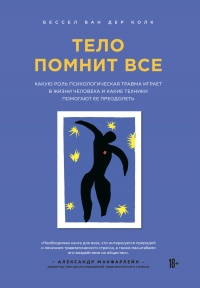Книга Призраки прошлого. Структурная диссоциация и терапия последствий хронической психической травмы - Онно Ван дер Харт
На нашем литературном портале можно бесплатно читать книгу Призраки прошлого. Структурная диссоциация и терапия последствий хронической психической травмы - Онно Ван дер Харт полная версия. Жанр: Книги / Психология. Онлайн библиотека дает возможность прочитать весь текст произведения на мобильном телефоне или десктопе даже без регистрации и СМС подтверждения на нашем сайте онлайн книг knizki.com.
Шрифт:
-
+
Интервал:
-
+
Закладка:
Сделать
Перейти на страницу:
Перейти на страницу:
Внимание!
Сайт сохраняет куки вашего браузера. Вы сможете в любой момент сделать закладку и продолжить прочтение книги «Призраки прошлого. Структурная диссоциация и терапия последствий хронической психической травмы - Онно Ван дер Харт», после закрытия браузера.
Книги схожие с книгой «Призраки прошлого. Структурная диссоциация и терапия последствий хронической психической травмы - Онно Ван дер Харт» от автора - Онно Ван дер Харт:
Комментарии и отзывы (0) к книге "Призраки прошлого. Структурная диссоциация и терапия последствий хронической психической травмы - Онно Ван дер Харт"
























